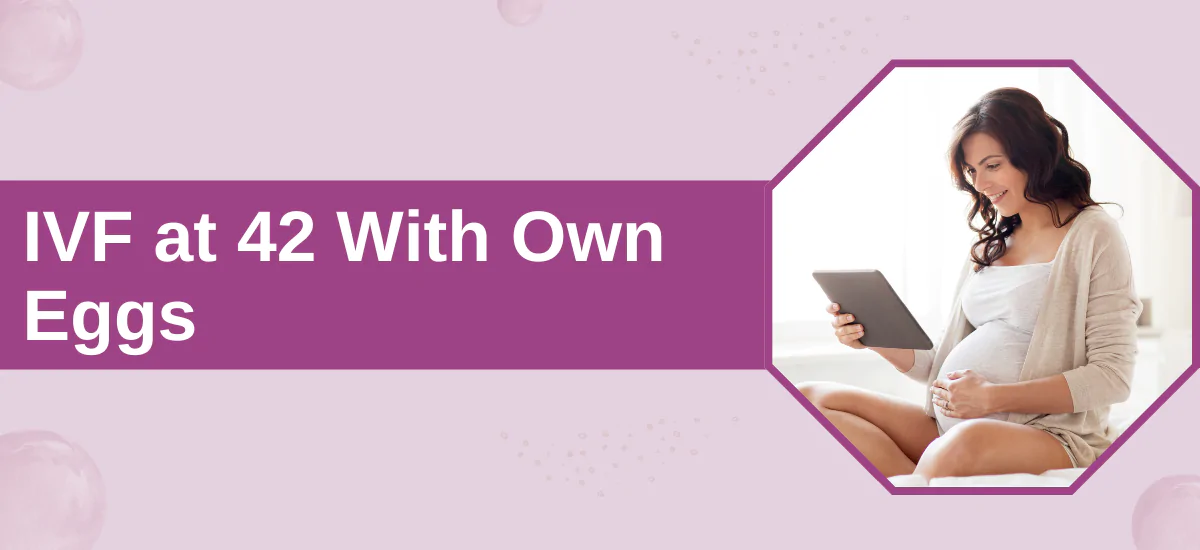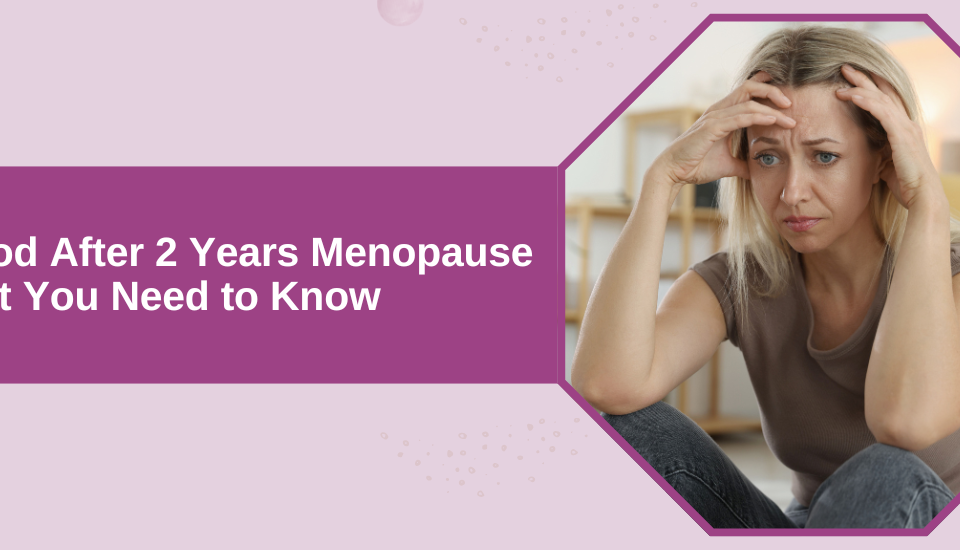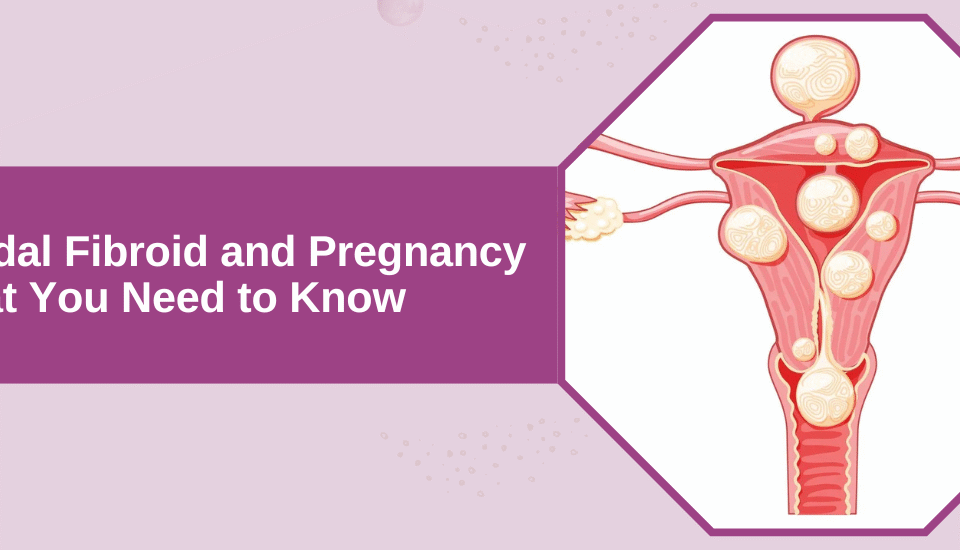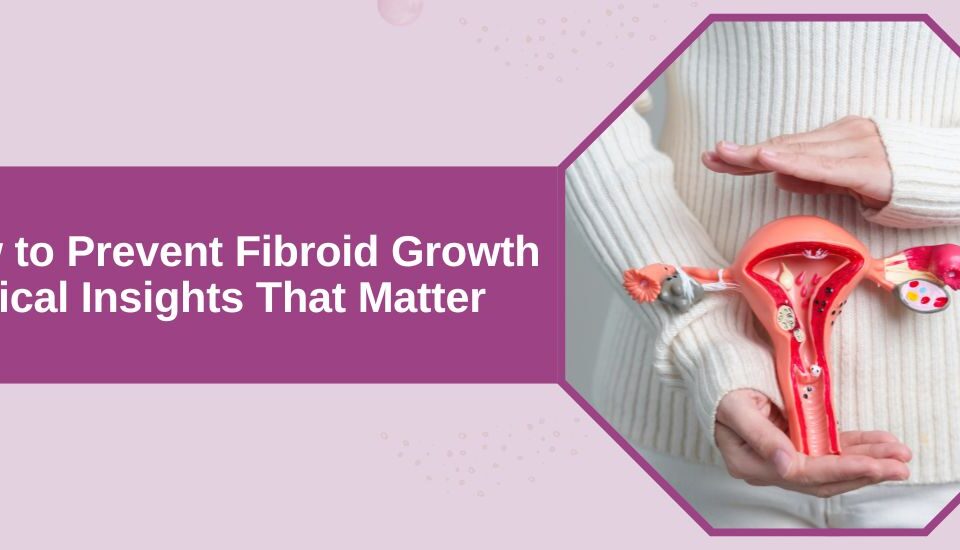- Have any questions?
- +91-98717 17305
- babiesandus12@gmail.com
IVF at 42 with own eggs

Pregnant at 45 with own eggs: A Realistic Guide
April 29, 2024
IVF at 49 with own eggs
June 4, 2024Are you thinking of IVF at 42 with own eggs? It might be promising and a little bleak at the same time. As you know, with advancing age, fertility keeps declining, but IVF offers a ray of hope for those who still desire to conceive.
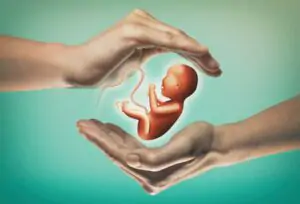
Nevertheless, the success rates and considerations differ compared to young ages. Understanding the process, potential challenges and success factors is crucial before you begin your IVF treatment.
It is necessary to take advice from fertility experts with experience, who can provide information and support, according to your circumstances.
Babies and Us IVF Center in Mumbai stands out for its combination of advanced fertility techniques and compassionate care.The clinic uses state-of-the-art technology to maximize your chances of success and provides an environment where you can feel supported throughout your treatment process.
For better insights, book an appointment with the doctor.
Moving on, read below for clarity on the possibility of conceiving a baby at 42 through IVF.
Is undergoing IVF at 42 with own eggs possible?
Yes, pursuing IVF at 42 with own eggs is achievable. Advances in reproductive medicine make it possible for women over 40 to consider IVF as a viable option.
The likelihood of achieving a successful pregnancy from each embryo transferred into the womb at age 42 can vary and is generally lower compared to younger ages. Women are born with a finite number of eggs, usually around 400,000, which gradually decline over time. By age 42, the quantity and quality of remaining eggs can be reduced, making it more challenging to conceive and sustain a pregnancy through embryo transfer.
Babies & Us IVF Center excels in these complex cases, utilizing advanced reproductive technologies to retrieve more healthy eggs and optimize the chances of conception.
You might be wondering about the various pros and cons of undergoing IVF at 42. Let’s take a look below.
Benefits and risks/complications of undergoing IVF at 42 with own eggs.

Benefits:
- A chance to conceive a child genetically related to you, preserving your genetic legacy.
- Ability to plan your family’s future with more control over timing.
- Utilization of genetic screening to ensure the embryos’ health before implantation.
Risks/Complications:
- Lower success rates as compared to treatments performed at a younger age.
- Increased risk of complications such as gestational diabetes and hypertension during pregnancy.
- A higher likelihood of encountering genetic abnormalities in embryos, though proactive screening is available.
Every woman’s body is different, get a thorough evaluation with an expert, Schedule an appointment today.
Timing is crucial during fertility treatments, check out the factors you need to consider when deciding what is the right time for starting the IVF treatment.
What is the eligibility and right time for IVF treatment at 42?
When considering IVF treatment at 42 with your own eggs, several factors come into play to determine whether it’s recommended for you.
- Women with adequate ovarian reserve, as indicated by fertility diagnostics such as blood tests (AMH levels) and ultrasound scans (antral follicle count).
- Beyond ovarian reserve, your overall reproductive health plays a crucial role in determining the suitability of IVF treatment. Factors such as the health of your uterus, fallopian tubes, and hormonal balance are essential considerations.
- Understand the complexities of IVF treatment and prepare yourself emotionally for the path ahead.
Keep reading below to know what you might experience during the IVF treatment process.
What to expect?
IVF at 42 with your own eggs offers hope for achieving pregnancy, but it’s essential to understand the potential results, side effects, and post-treatment care requirements.
Results:
- There is limited potential for IVF success at 42 with own eggs, but it may vary according to age-related factors and your body’s condition.
- Consultation with a fertility specialist can help you get tailored treatment to help boost your chances a bit.
Side Effects:
- Hormonal Changes: IVF involves hormonal medications to stimulate egg production, due to which you may face mood swings, bloating, and breast tenderness.
- Ovarian Hyperstimulation Syndrome (OHSS): In rare cases, excessive response to fertility drugs may lead to OHSS, characterized by abdominal pain and swelling. Your doctor will monitor you closely to minimize risks.
Post-Treatment Care:
- After embryo transfer, you will be advised to rest and avoid strenuous activities to improve implantation chances.
- You’ll be prescribed medications to support embryo implantation and pregnancy. Adherence to the medication schedule is crucial for optimal results.
- IVF can be emotionally challenging. Seek support from loved ones or consider counseling to cope with stress and anxiety.
Success Rates
Although the average rate of favorable outcomes through IVF at 40 is usually 9-10%, having multiple cycles can help improve your chances.
Also, the IVF success at 42 with own eggs varies, with outcomes depending heavily on personal health and fertility conditions. Detailed assessments can provide more personalized success predictions.
Furthermore, let’s discuss what steps you can take to improve your chances.
Tips to boost the success rate of IVF at 42.
To maximize your IVF success, consider these tips:
- Pick a clinic with a proven track record of success in IVF for older women, such as Babies & Us.
- You should maintain a healthy lifestyle with a balanced diet and regular exercise.
- Apply stress reduction techniques, including yoga or meditation.
Learn what other options you can try for a successful pregnancy.
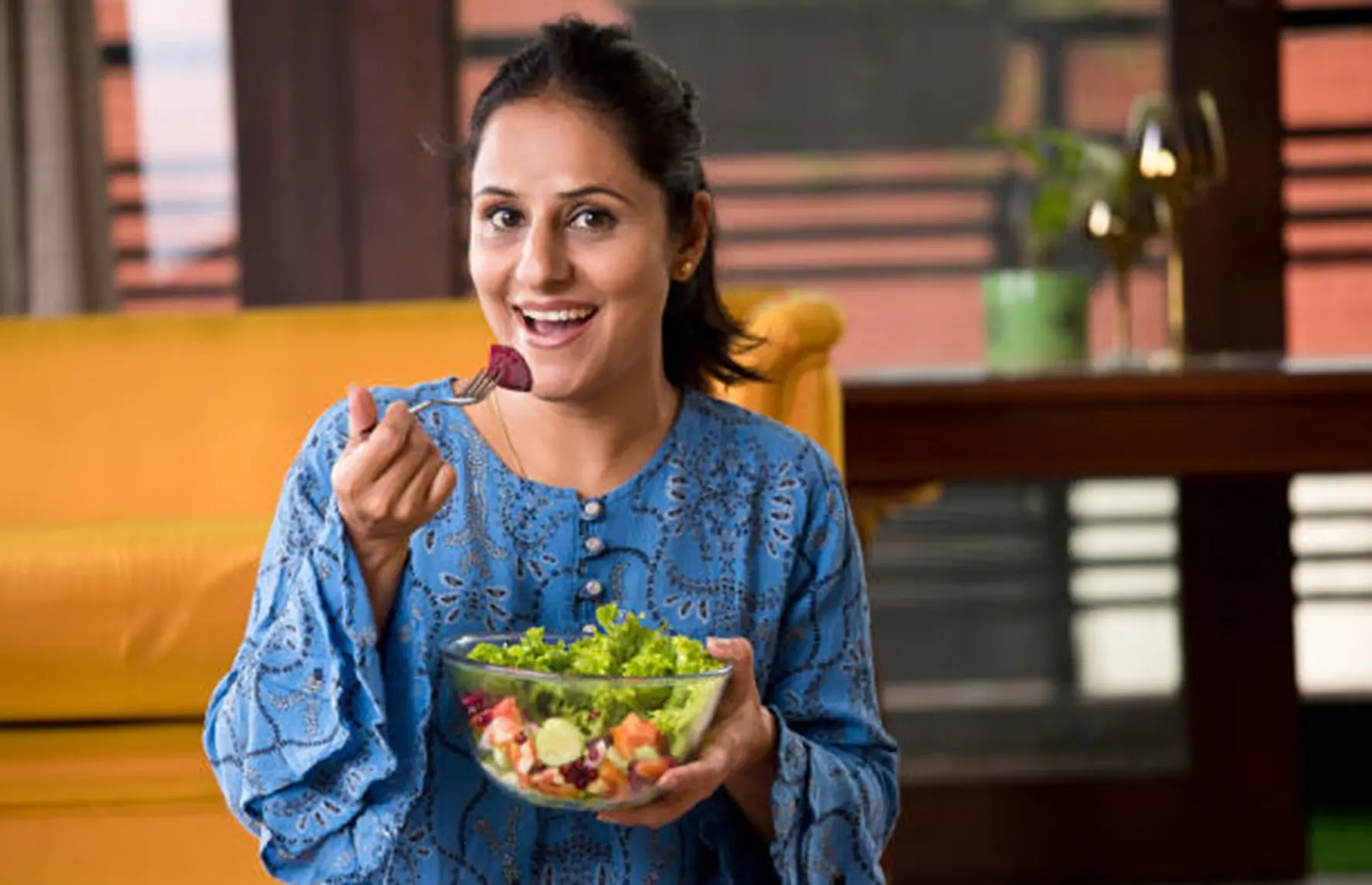
Other options to consider for conceiving at 42
Alternative pathways to parenthood include:
- Egg Donation: Offers higher success rates for IVF beyond age 40.
- Adoption: A rewarding alternative to biological parenthood.
- Foster Care: You can provide a temporary home to an underprivileged child, with the potential for permanent adoption.
- Surrogacy: An option for those advised against pregnancy due to health risks.
Babies and Us IVF Center is committed to supporting you through your IVF treatment with comprehensive, advanced care tailored to your needs. Dr. Nandita Palshetkar and her dedicated team provide both the medical and emotional support required at this pivotal time.
If you are considering IVF at 42 with your own eggs, reaching out to the clinic is a proactive step towards expanding your family.
If you still have some doubts, consider reading some faqs below.
FAQs
Are there any tests or screenings required before undergoing IVF at this age?
- Complete screenings will likely be carried out including hormone level assessment, reproductive organ ultrasound, infectious disease tests, and genetic screening to identify the most appropriate IVF strategy.
What are the chances of success with IVF at 42 using own eggs?
- The chances of IVF using your own eggs at 42 are approximately 9%-10%, but it can differ individually, based on your unique health characteristics.
Are there any lifestyle changes recommended before undergoing IVF at 42?
- It is advised to stay in the correct weight category, quit smoking, limit alcohol, manage stress, and follow a healthy and balanced diet. Where synthetic supplements such as folic acid and CoQ10 are involved, be sure to consult your doctor.
Is there any age limit for undergoing IVF with own eggs?
- There is no legal age restriction, but as eggs become of lower quality and quantity at 42-45 age, clinics often recommend using donor’s eggs.
What should I expect during the IVF process at 42?
- Expect to go through the process involving egg stimulation using hormone treatments, egg retrieval, fertilization in a lab, and embryo transfer with regular health monitoring and adjustments when necessary.
References:
( https://www.forbes.com/health/family/ivf-success-rates-by-age/ )

